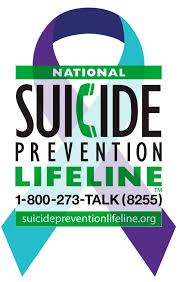Anthony Bourdain, Kate Spade, and Anyman - the Contagion of Hopelessness
In the wake of Kate Spade's death, looking at suicide differently
Excerpt:
The list of warning factors for suicide reads, in part, like a catalog of everyday modern ills: lagging self-esteem, depression, loss of relationships or economic security, insomnia. “When you look at those lists,” says Eric Beeson, core faculty member at Northwestern University’s Counseling@Northwestern, “it almost seems like who’s not a candidate for suicide?”
Suicide risk is not as simple as a list of risk factors. “We talk about suicide as this one thing,” says Beeson, “but suicide is really this spectrum of behaviors. You always ask, ‘Are they suicidal?’ and for me that’s really a limiting question.” In assessing whether people might kill themselves, Beeson looks at “key variables that seem to be more related to death.” Those are:
With the first two factors, Beeson says, people begin to have ideas about suicide. Adding hopelessness can bring on planning of a suicide. But the final factor is the hardest to discern.
- Perceived burdensomeness, “this idea that my death is more valuable than my life.”
- Thwarted belongingness, “meaning I try to make meaningful connections, and they just don’t work out.”
- Hopelessness, “OK, I have this, and it’s never going to get better.”
- Acquired capability, the ability to set aside normal psychological and physical constraints and perform an act that may be painful or horrifying.
Clinicians like Beeson look for clues that the person might have become more inured to pain, shame or guilt. Past histories of abuse, substance abuse disorders, assaults or even professions such as medicine that make contact with death part of the everyday can constitute a slow wearing away of the mental and physical barriers to self-harm. “People work along that continuum until they start to overcome the pain, the shame and the guilt,” he says, “and then the value of suicide starts to outweigh the pain, shame and guilt.”
Suicide is not typically an impulsive act. “People talk about it being selfish; people talk about it being irrational,” says Beeson, “but actually I think a lot of suicides are very well-thought out, very well-contemplated. And generally not impulsive. Generally, this is a long process for an individual that started with a faint idea that gradually took hold as those risk factors mounted and as the capability came into their purview.” Leaving behind a note, as Kate Spade reportedly did, can be interpreted as evidence of the contemplation suicide often entails — it may be an attempt to remove the last psychological barriers to death.
“Some people might say that it’s a last way to cope with some of the guilt,” says Beeson. “The guilt can be a protective factor in a certain way, so some people might say that’s a way to reduce that. There’s something about this that the person is still not OK with, so they are trying to address that.”
The philosophical debate on suicide is more present than ever. In ancient societies, suicide was sometimes interpreted as an available and even noble choice. Today, in countries like Switzerland, where there are euthanasia clinics, assisted suicide is accepted. And five U.S. states and the District of Columbia have “Death With Dignity” laws that allow assisted suicide in cases of terminal illness.
“That gets us into the discussion of whether it is ever OK and under what circumstances,” Beeson says. “Some people would argue that if I have a chronic mental health condition that interferes with my quality of life, is that any different than a fatal medical condition? And that’s a really really hard discussion to have.”The grim impact of celebrity suicides
Excerpt:
According to several studies, publicity surrounding a suicide has been repeatedly linked to a subsequent increase in the act, particularly among young people.
After Marilyn Monroe died in August 1962, the cause listed as probable suicide, the nation mourned — publicly. In the month that followed there was sweeping news coverage, public memorials and a 12% increase in suicides. That month saw an additional 303 suicides in comparison to the year prior, according to a study published in the Journal of Epidemiology & Community Health.
When Robin Williams died in 2014, the world reacted similarly. The comedian’s image was everywhere, details of his untimely passing spawned countless news articles and think pieces. His death is also similarly associated with a 10% increase in suicide across the United States in the five months after his passing, according to a study published in the journal, PLOS ONE, in February.
The phenomenon is often referred to as “suicide contagion,” defined by the Department of Health and Human Services as an increase in suicides due to “the exposure to suicide or suicidal behaviors within one’s family, one’s peer group, or through media reports of suicide.”
And the overwhelming influence of a celebrity or high-profile suicide is far from a new discovery. Following the 1774 publication of Wolfgang Goethe’s “The Sorrows of Young Werther” — a book in which a young man ends his life after a failed love affair — Europe also saw a spike in suicides, particularly in men the same age as the protagonist.
The outbreak prompted the novel to be banned in several European locations.Comments:
I have some (albeit limited) experience on the subject of suicide. A very close friend's father committed suicide in the early hours of July 5th 1967.
I've had friends and acquaintances commit suicide and I've counseled a handful of suicidal persons. I don't credit it to my counseling skills, but none of my counselees followed through with their intents.
I've also counseled a man who attempted suicide. He had shot himself all the way through his his head - temple to temple! He used to small of a calibre weapon to accomplish his objective, but the act left him blind in one eye, mostly blind in the other and mostly paralyzed.
I have a relative who attempted suicide with a rifle and left a hole in his home's roof.
Just this year a prominent and respected church member committed suicide.
Somewhat related, I was a kid when Superman committed suicide. I remember being told about it and how it left a mark on me.
Someone recently asked me if suicide is mentioned in the Bible. The answer is that there are Bible character who indeed kill themselves: Most obviously would be Judas, Saul, and Samson. Here's a list of seven suicides in the Bible.
I have a family member who has told me that if he ever gets cancer he's going to commit suicide.
I've also counseled people whose parents committed suicide. Needless to say, that suicide is terribly hurtful to one's children and loved ones. A study has shown that children of parents who committed suicide are at a significantly increased risk for committing suicide themselves. The younger the child at the time of the parent's suicide, the greater the risk of his or her own suicide.
I've been asked - "have you ever considered suicide?" There was one time, briefly, when if I could have killed myself I think perhaps I might have. When I was in intensive care after I broke my neck - when I woke up and knew my condition, I prayed to die! I had a $ 100,000 life insurance policy and I deemed that my wife would be better were I dead. I think that if there were a red button that would have ended my life, I would have pushed it.
Have I been discouraged in life? Yup! Many times. My ministry career didn't turn out the way I had hoped and frankly the last year of my career was less than fun!
Does the Bible speak directly to the ethics of suicide? Yes indeed. "Suicide" defined is "to kill oneself":
The "-cide" suffix pertains to "killing"
God is the granter and the One with authority to end life:
So to be clear - it is morally wrong to take one's life!
Hopelessness is a dangerous Suicide warning sign and the answer to hopelessness is Christ!
John 3 is the key chapter on being born again and John 3:16 is the key verse:
I have a line break above to separate the image below from the very importable Biblical teachings in this blog post. For those with immediate thoughts of suicide - please, I beg you, do not hurt yourself - reach out to someone today. This hotline is always available:
“Suicide rates have increased in nearly every state over the last two decades, and half of the states have seen suicide rates go up more than 30 percent.”— Fr Matthew P. Schneider LC (@FrMatthewLC) June 8, 2018
The Church needs to be part of the solution: a place to turn to & a source of hope. https://t.co/JDPNdU50CY
Attributed (at least partially) to the rise of hopeless. https://t.co/QhH2DhZXk9— James Peet (@jrpeet) June 8, 2018
Kate Spade's Death Officially Declared Suicide by Hanging: Medical Examiner https://t.co/q28AHaKnDv via @people— James Peet (@jrpeet) June 9, 2018
'We're so extremely busy:' More calling suicide prevention hotlines since celebrity deaths https://t.co/t7yn9INb1S via @usatoday— James Peet (@jrpeet) June 9, 2018
BBC News - Why US suicide rate is on the rise https://t.co/UTARg2Lzht— James Peet (@jrpeet) June 9, 2018
Anthony Bourdain, globe-trotting chef who explored culture through cuisine, dies at 61 in apparent suicide https://t.co/eH4UL2bnPR— James Peet (@jrpeet) June 9, 2018
Grim details of Robin Williams' death released by investigators https://t.co/trRK5dzF8h via @SFGate— James Peet (@jrpeet) June 9, 2018
Suicide rates have risen significantly across all age and ethnic groups since the late 1990s, with 25 states recording increases of more than 30%, CDC reports https://t.co/FgZQK2BzPV via @WSJ— James Peet (@jrpeet) June 9, 2018
I've heard this view (below) that is is wrong to say that someone "committed suicide". I strongly disagree! It's a choice they made!The number of school-age kids and adolescents hospitalized for suicidal thoughts or attempts from 2008 to 2015 more than doubled, the study found. https://t.co/wIkFApJrEn— USA TODAY (@USATODAY) June 9, 2018
The words to say -- and not to say -- about suicide @CNN https://t.co/LResCaWa7S— James Peet (@jrpeet) June 9, 2018
Bible Perspective on Suicide https://t.co/25k29ro3Pz pic.twitter.com/pTtqthpBF3— Thomas Overmiller (@ShepherdThought) June 9, 2018
How Suicide Quietly Morphed Into a Public Health Crisis https://t.co/NeWs4cihFh— James Peet (@jrpeet) June 11, 2018
People who are depressed use different words than people who are not, such as ‘I’ and absolutes like ‘always.’ https://t.co/RVM0u2QnTJ via @WSJ— James Peet (@jrpeet) June 11, 2018
Bible Answers for Suicidal Thinking https://t.co/TdyheJpSuY— James Peet (@jrpeet) June 13, 2018
One in three Americans take meds with depressive side effects: study https://t.co/1kCT4zlPT5 via @YahooNews— James Peet (@jrpeet) June 13, 2018
— James Peet (@jrpeet) June 13, 2018
— James Peet (@jrpeet) June 13, 2018
Suicide rates for women 45 to 64 increased 60% and men of that age group 37% between 2000 and 2016 https://t.co/cSc0tOrozO via @WSJ— James Peet (@jrpeet) June 14, 2018
Blame it on Uber?Karl Rove: My Mom’s #Suicide Was Preventable— James Peet (@jrpeet) June 15, 2018
HT: @KarlRove https://t.co/6IVlCYGMtq pic.twitter.com/YduGLo8DjS
Another cash-strapped NYC cabbie commits suicide https://t.co/DRT1oubVEB via @nypmetro— James Peet (@jrpeet) June 16, 2018
— James Peet (@jrpeet) June 24, 2018
— James Peet (@jrpeet) June 24, 2018
Deaths by suicide are still increasing among veterans, the Dept. of Veterans Affairs says in its latest report on suicide. https://t.co/8kSxeoQPTi (1/4)— NBC News (@NBCNews) June 25, 2018
Nearly 78 percent of the 45,000 people who kill themselves every year in the United States are men. Here’s what the research on masculinity tell us about this crisis: https://t.co/Bd4nnZ2d36 pic.twitter.com/jYrED67pqw— Slate (@Slate) June 28, 2018
Perspective: Suicide is on the rise. Depression therapy is limited. Let’s try psychedelics. https://t.co/0IvMbv7kqL— Washington Post (@washingtonpost) July 4, 2018
BBC News - Swansea University student's suicide after 'WhatsApp mistake' https://t.co/906bmp3W16— James Peet (@jrpeet) July 6, 2018
Anthony Bourdain worth only $1.21M at the time of his death https://t.co/wcB5LVvYaf via @pagesix— James Peet (@jrpeet) July 6, 2018
— James Peet (@jrpeet) August 3, 2018
Rick Genest, Tattooed Model Known as Zombie Boy, Dies at 32 https://t.co/RBJSwe7eXF— James Peet (@jrpeet) August 4, 2018
JP: Any suicide is sad - very sad! But perhaps he looked at himself in the mirror ever day and suffered regret.
L'Oreal e lo Zombie Boy. Go Beyond the Cover and the Backstage https://t.co/Xn51w6PZ2F via @YouTube— James Peet (@jrpeet) August 4, 2018
'Superman' actress Margot Kidder's death ruled a suicide https://t.co/F3c6eeFcWv via @MailOnline— James Peet (@jrpeet) August 9, 2018
'Austin Powers' star Verne Troyer's April death ruled a suicide https://t.co/1OwMeom88W via @usatoday— James Peet (@jrpeet) October 10, 2018
#Suicide s peak https://t.co/CBmj1aWfCG— James Peet (@jrpeet) November 29, 2018
— James Peet (@jrpeet) December 3, 2018
There have been more military suicides since 2003 than the number of troops killed in Iraq.— Thomas E. Ricks (@tomricks1) December 2, 2018
https://t.co/J0ADZqBxVt
"I replayed our last conversation, and each one before it that I could remember. I wanted to know every fact, every detail, to see everything she saw, because I didn’t have the one thing I wanted – the why." -@lauraftrujillo on her mom's suicide https://t.co/UYa5CDWOhl— USA TODAY (@USATODAY) December 4, 2018
— James Peet (@jrpeet) December 4, 2018
Priest Pulled From Funerals After Repeatedly Citing Teenager’s Suicide in ‘Pastoral Disaster’ https://t.co/LtfRJJMRn9— James Peet (@jrpeet) December 16, 2018
John Coughlin, Figure Skating Champion, Dies of Apparent Suicide After Suspension https://t.co/2DHbYpHnFE— James Peet (@jrpeet) January 21, 2019
— James Peet (@jrpeet) February 1, 2019
One in four teenage suicides involves the internet, official inquiry finds https://t.co/VtX6fGsYb4 via @Telegraph
— James Peet (@jrpeet) February 26, 2019















No comments:
Post a Comment
Any anonymous comments with links will be rejected. Please do not comment off-topic